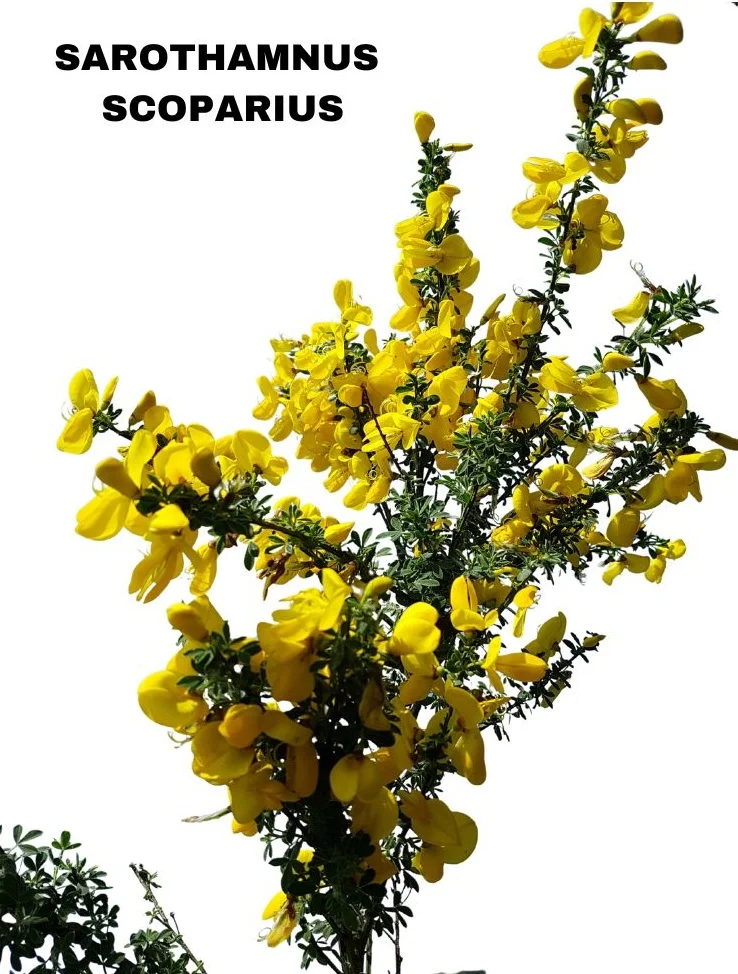Sarothamnus Scoparius, commonly known as Broom, is a plant whose alkaloid, sparteine sulphate, has significant medicinal properties.
It is particularly known for its effects on the cardiovascular system, offering benefits similar to Veratrum and Digitalis but without their undesirable effects.
This remedy is valuable in treating conditions like hypotension, heart irregularities, and dropsy, and it also has diuretic properties.

SOURCE INFORMATION
- Also Known As: Spartium Scoparium, Cytisus Scoparius
Scientific Classification
- Kingdom: Plantae
- Order: Fabales
- Family: Fabaceae
- Genus: Cytisus
- Species: C. scoparius
Origin
- Native to Europe, Broom is a shrub found commonly in various parts of the continent.
- Its medicinal uses have been recognized for centuries, especially in traditional European medicine.
Historical Facts
- The use of Broom dates back to ancient times when it was used for various ailments, particularly those related to the heart and kidneys.
- In homeopathy, its alkaloid sparteine sulphate was introduced to provide a safer alternative to more potent cardiovascular drugs like Digitalis.
PATHOGENESIS
- The pathogenesis of Sarothamnus Scoparius revolves around its effects on the cardiovascular and urinary systems.
- It acts by reducing blood pressure, slowing the heart rate, and increasing urine output.
- This makes it effective in treating heart conditions, hypertension, and fluid retention.
KEY CHARACTERISTICS
- Cardiovascular Support: Strengthens the heart while reducing blood pressure and pulse rate.
- Diuretic Properties: Increases urine output, helping in conditions like dropsy.
- Hypotension Management: Used to combat low blood pressure and its associated symptoms.
DETAILED ORGAN SYMPTOMS
HEART
- Cardiac Effects: Strengthens the heart muscles, slows the heart rate, and lowers blood pressure.
- Irregular Heart Action: Useful in cases of irregular heartbeats, especially after infections or in hysterical patients.
- Myocardial Degeneration: Helps in cases of failing heart compensation.
- Angina Pectoris: Provides relief in angina attacks.
STOMACH
- Gas Accumulation: Alleviates mental depression associated with gastrointestinal gas buildup.
URINARY
- Diuretic Effect: Increases the total urine output, providing relief in dropsy.
- Burning Sensation: Relieves burning along the urinary tract and in the genital area.
- Profuse Urination: Induces a profuse flow of urine.
MODALITIES
- Worse: Symptoms may worsen with mental depression and nervous excitement.
- Better: Symptoms improve with rest and proper cardiovascular support.
WHAT ARE MODALITIES IN HOMOEOPATHY?
RELATIONSHIP WITH OTHER DRUGS
- Compare with: Veratrum and Digitalis for cardiovascular support; they offer similar benefits but with fewer side effects.
DOSE
- Non-Homeopathic Use: For palliative treatment, one to two grains taken orally three times a day; can be administered hypodermically at doses not less than 1/4 grain.
- Homeopathic Use: First to third trituration.
Frequently Asked Questions
What conditions can Sarothamnus Scoparius treat?
- It is primarily used to treat heart conditions, hypotension, fluid retention (dropsy), and urinary tract issues.
How does Sarothamnus Scoparius affect the heart?
- It strengthens the heart muscles, reduces the heart rate, and lowers blood pressure without the undesirable effects of similar drugs like Veratrum and Digitalis.
Is Sarothamnus Scoparius safe for long-term use?
- Yes, when used at recommended doses, it is considered safe and effective for long-term management of cardiovascular and urinary conditions.
What are the primary symptoms indicating the need for Sarothamnus Scoparius?
- Symptoms include irregular heartbeats, low blood pressure, fluid retention, and burning sensations in the urinary tract.
Glossary of Difficult Words
- Sparteine Sulphate: An alkaloid derived from the Broom plant, used for its cardiovascular benefits.
- Hypodermically: Administered under the skin.
- Diuretic: A substance that promotes the increased production of urine.
- Myocardium: The muscular tissue of the heart.
- Prostration: Extreme physical weakness or exhaustion.
- Angina Pectoris: Severe chest pain due to inadequate blood flow to the heart.
This comprehensive drug picture provides a detailed understanding of Sarothamnus Scoparius, its uses, and its indications for treatment.
